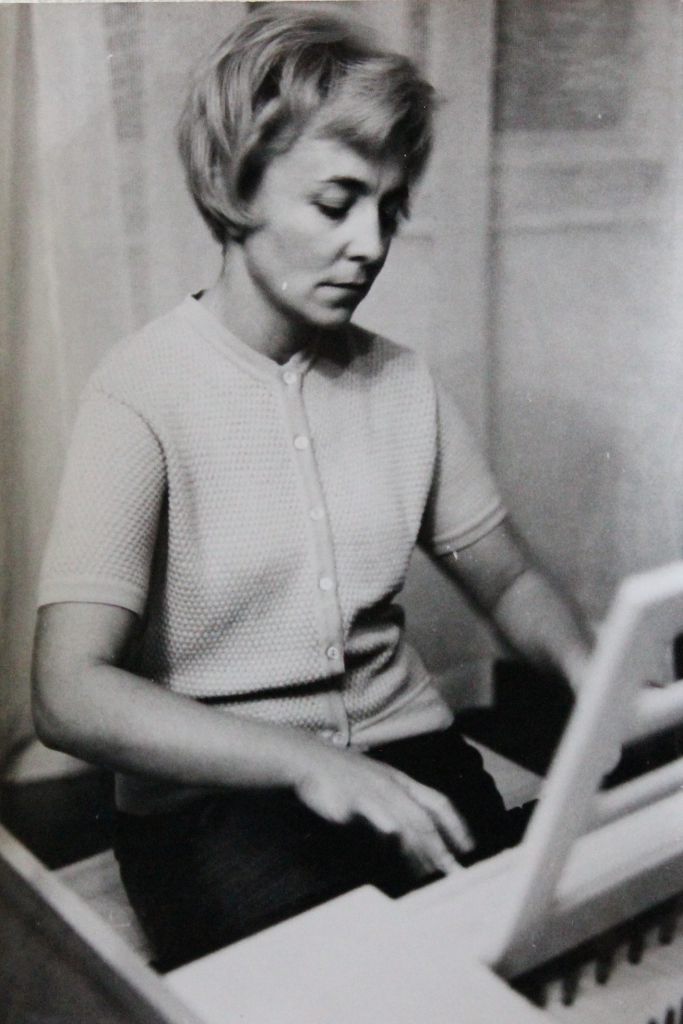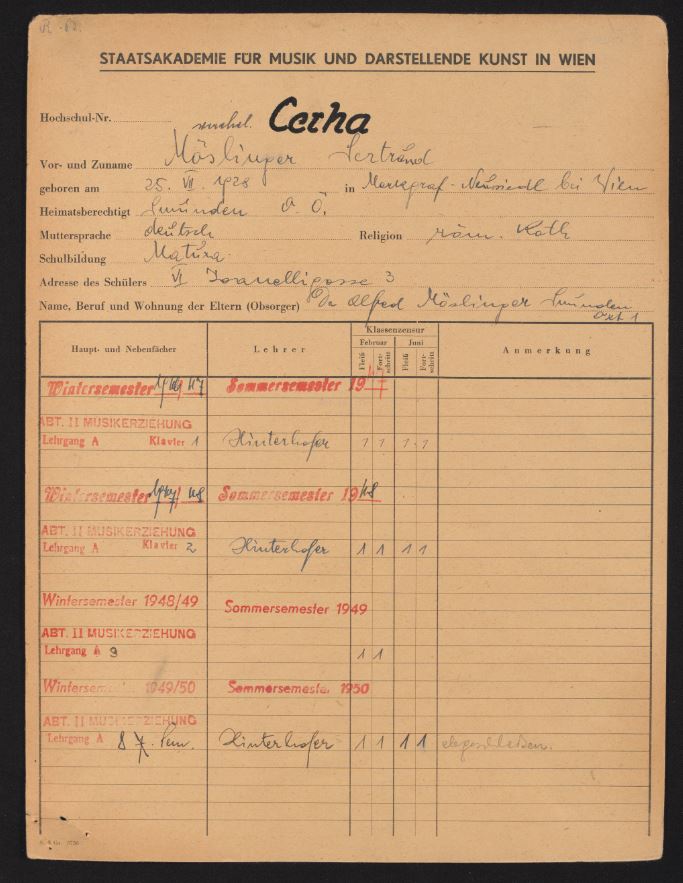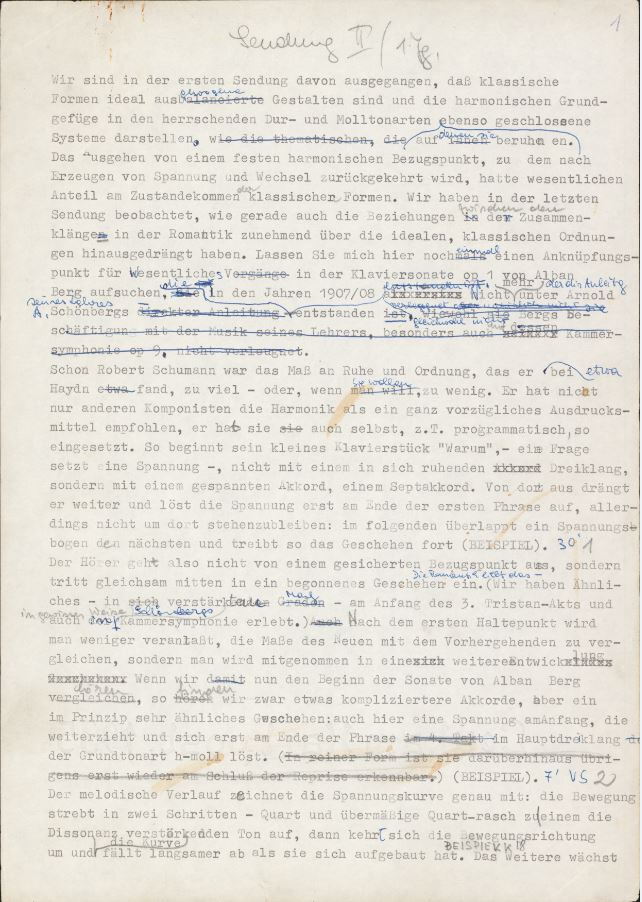“My aunt Ilona always told me I was the only kid who liked practicing piano!” Gertraud Cerha once told an interviewer with a chuckle. Such childlike enthusiasm still shines through in the liveliness with which she now tells of her doings as a music educator and a dedicated contemporary music mediator. This past October, on the occasion of her 95th birthday, members of the public had the privilege of experiencing this exceptional personality in conversation at the mdw as part of an “Evening for and with Gertraud Cerha” at which a presentation of archival material also offered exclusive glimpses into her life and work.

Gertraud Cerha (née Möslinger) was born in 1928 and grew up in Gmunden, Upper Austria. 1946 witnessed the beginning of her association with the mdw – University of Music and Performing Arts Vienna, then still called the Academy, when she began studying piano under Grete Hinterhofer while also pursuing studies in music education and history. She met her future husband Friedrich Cerha (1926–2023), now regarded as one of the most important Austrian composers, while still a student. Their central interest in common back then was their enthusiasm for early music, a realm in which they became active together later on thanks to Gertraud’s harpsichord studies in the class of Eta Harich-Schneider. Gertraud Cerha went on to found the ensemble Camerata Frescobaldiana while scouring Italian libraries for undiscovered repertoire that husband Friedrich would edit on a continual basis with her involvement. However, it was for their activities and advocacy in the realm of contemporary music that the couple ultimately became more widely known. 1958 saw them join forces with Kurt Schwertsik to found the ensemble “die reihe” with the intent of introducing current international works as well as Cerha’s and Schwertsik’s own compositions in Austria while also performing and re-familiarising the public with the marginalised music of the Second Viennese School. Gertraud Cerha was active with this ensemble as a musician, organiser, and music mediator.

To go with the concerts of their ensemble’s successful series Wege in unsere Zeit [Ways to Our Times], she conceived and held pre-concert multimedia lectures covering a wide range of topics—lectures that she would eventually present as a series with Austria’s national broadcaster. A significant hallmark of her mediatory work was how she always made it a point to reference parallel developments and interactions between fields such as music, painting, and architecture in her portrayals of recent music history. This concept likewise figured prominently in her work at a Viennese academic secondary school, where she taught for 30 years and played a pivotal role in founding a music emphasis.

Cerha also spent 26 years teaching basso continuo at our own institution as part of what was then the Department of Keyboard Instruments. Through her many decades as an observer of the contemporary music scene and a mediator on its behalf, she became an expert on Austrian musical culture’s post-1945 developments and added her own voice to the discourse as a speaker and book contributor, in addition to which she conceived an innovative symposium to accompany the very first Wien Modern festival in 1988. For her many achievements, Gertraud Cerha was awarded the Austrian Decoration for Science and Art—and in her husband’s living bequest to the Archive of Contemporary Arts at the University for Continuing Education Krems, countless materials document her manifold activities as well as the Cerhas’ life-long close collaboration.
The “Evening for and with Gertraud Cerha” on 17 October 2023 featured a ceremonial address by Gundula Wilscher and Melanie Unseld, a live conversation between Gertraud Cerha and Axel Petri-Preis, and a musical contribution by voice students of Martin Vácha. This cooperative event of the Department of Musicology and Performance Studies and the Archive of Contemporary Arts can be streamed via the mdwMediathek.

